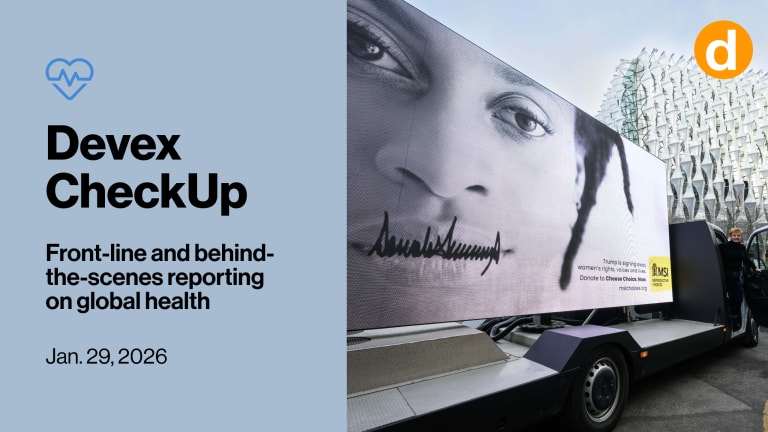
There’s new blood in the Italian government – and it’s not only the people leading the bureaucracy. Say hello to the Italian Ministry for International Cooperation and Integration.
The ministry, however, remains without portfolio. Because international cooperation has been under the jurisdiction of the Ministry of Foreign Affairs, the government of Prime Minister Mario Monti, which assumed office in mid-November 2011, had to decree a transfer of powers to the new Cabinet entity. The process of the formal transfer is ongoing.
So, it’s status quo on the matter of international cooperation. Specifically, the Ministry of Foreign Affairs’ Directorate-General for Development Cooperation, or DGCS, will continue to implement the country’s aid policies, until further notice.
DGCS has dedicated offices that handle humanitarian aid as well as development cooperation with various regions, multilateral agencies, the European Union and civil society groups. It is headed by Elisabetta Belloni.
Declining aid levels
In an interview with Devex in May 2010, Belloni painted a bleak picture concerning funding for development projects in 2011.
“The relevant thing is that at this point, in May 2010, Italian Cooperation [another name for DGCS] has used all of its 2010 allocation,” she said. “We can’t carry out new projects and we have also allocated all of our resources for 2011 already because projects are multiyear.”
Her pronouncement, to those familiar with the Italian aid scene, came as no surprise. Right before Christmas 2008, the Italian government, then led by Silvio Berlusconi, approved a budget that would entail steep funding cuts for international cooperation efforts starting 2009. Data from the Organization for Economic Cooperation and Development confirm this: ODA from Italy dropped 32 percent from $4.9 billion in 2008 to $3.3 billion in 2009, and to 3.1 billion in 2010. And practically all these funds go to multilateral initiatives or debt relief, according to Andrea Riccardi, the newly appointed Italian minister for international cooperation and integration.
Italy’s action has predictably drawn the ire of development luminaries. U.S. billionaire philanthropist Bill Gates has placed Italy on his “shame list,” while rock musician and anti-poverty advocate Bono has called for the expulsion of the European donor from the G-8.
But none have been more disapproving and concerned about Italy’s aid funding austerity than Italian nongovernmental organizations.
Italian NGOs’ predicament
Francesco Petrelli, president of the 250-member Association of Italian NGOs, told Devex in May 2010 that the lack of resources “means a deep crisis for Italian Cooperation that risks being irreversible. Surely, it will have implications on NGO staffing in the years to come.”
And it did. In July 2011, the Berlusconi government pursued an action that would prevent volunteers from participating in international development projects, leaving NGOs to exclusively shoulder all personnel costs in Italy-supported projects. Italian NGOs vowed to take their case to parliament to have the decision reversed.
Because of restricted government support, Italian NGOs have had to rely more on other sources of funding, mainly private donations and European Union aid.
In a radio interview earlier this year, Sergio Marelli, who heads the Italian NGO federation FOCSIV, said Italian NGOs have been able to mobilize about €500 million ($669 million), which is 50 times what the Italian government provided (€10 million) for international cooperation initiatives in 2011.
New ministry, new hope?
The appointment of Riccardi, however, is expected to turn the tide in favor of Italian aid groups.
The minister has said trimming the debt crisis-plagued country’s assistance overseas may make economic sense for some, but he believes international cooperation is not only an economic booster but also “gives moral substance to our policies.”
Such philosophy may be explained by Riccardi’s history. The official is the founder of the Community of Sant’Egidio, a Christian movement and charity that boasts a membership of 50,000 in 70 countries.
Rome and beyond
Sant’Egidio is based in Rome, which is considered the premier international cooperation hub in Italy. Aside from a multitude of nonprofits and consultancies, the Italian capital plays home to many international organizations, notably the three United Nations agencies focusing on food security: the Food and Agriculture Organization, International Fund for Agricultural Development and World Food Program.
Many aid organizations can also be found in other cities and small towns, a reflection of Italy’s tradition of decentralization and religious charity. Oxfam Italia, formerly UCODEP, for instance, is headquartered in the city of Arezzo in the region of Tuscany.
Read more Italian aid news:
Civil Society Gains Unprecedented Power in Premier UN Food Security Body
Italy’s Aid Cuts Prompting Existential Crisis, NGO Chief Says
The Curious Case of Afghanistan’s Detained Emergency Workers
More on aid and relief careers in Italy:
Italy Seeks Recent Graduates for Temporary Assignments with UN, Partners
Ending Global Hunger: Preparing for a Career in Food Security
More on getting a job with Italian aid groups:
More on Italian aid organizations:
Stay tuned, as in the coming days we will unveil our lists of top global development NGOs and consultancies in Italy.
Elena Pasquini contributed reporting.








